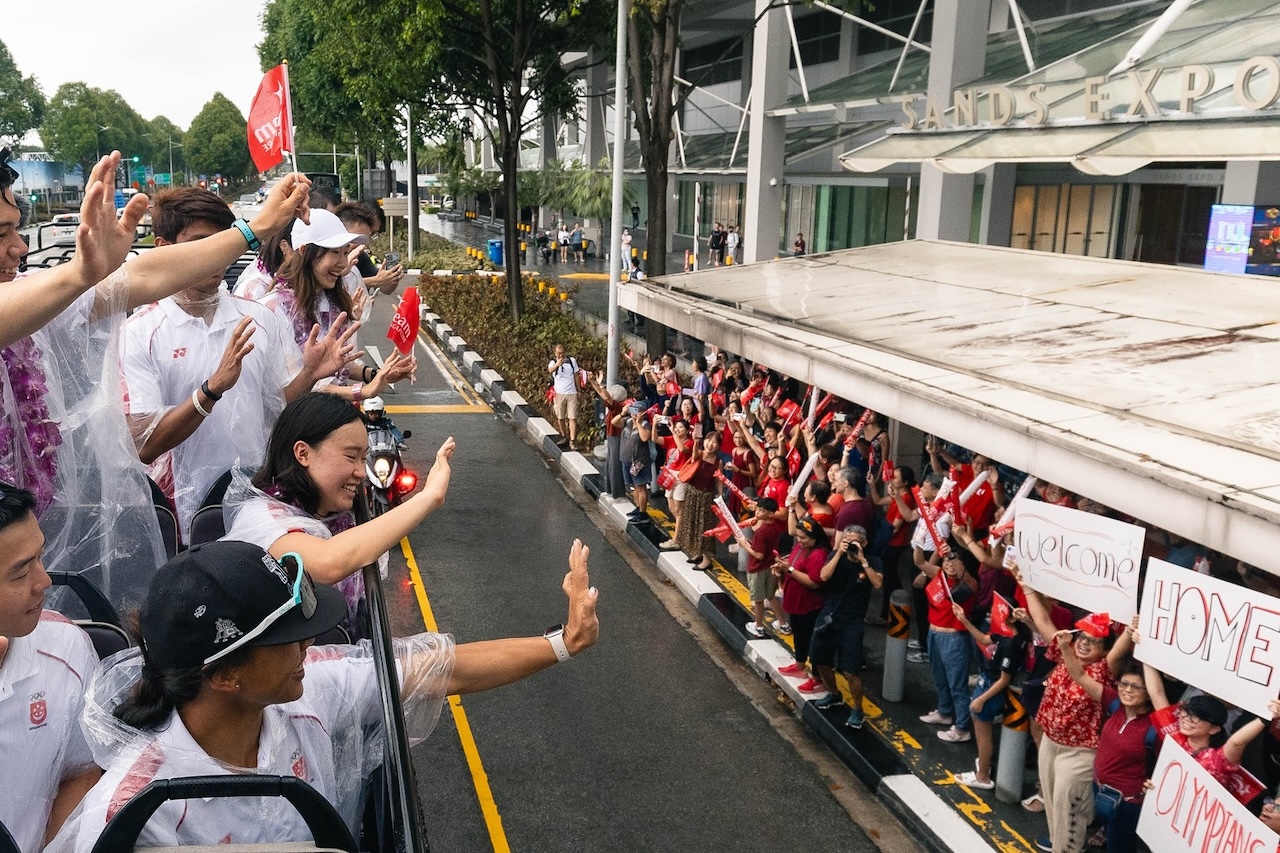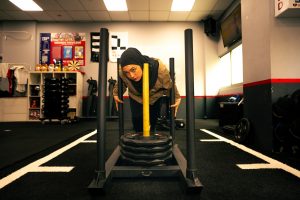Top image: Team Singapore / Facebook
Every four years, Singaporeans come together in a display of patriotism more rousing than even National Day. That’s right, it’s the Olympic Games.
This year, Singapore sent 23 athletes to Paris and came home with one bronze medal. For some, this is an achievement. Others think we could’ve done better. Whatever the case, lots of people have opinions.
RICE asks readers for their thoughts on how our athletes did and how we can help them do better.
“The athletes were amazing… The fact that Max Maeder won bronze was the icing on the cake. I mean, not everyone can take part in the Olympics, right?
Shanti Pereira qualified via A cut! She’s one of the top 50 fastest 200-metre female runners in the world! Medals are great, but the more important thing is that we strive for our best.
I saw a lot of keyboard warriors commenting about the open-top bus celebration of our athletes, asking why we are celebrating losers. These people will never understand the spirit of the Olympics.
We should be more encouraging and not be downers. Yes, we could have done better, but to those that were complaining that we only got a bronze—were you even in the school sports team for anything?”
— Riley, 40
“I don’t usually follow sports, but I make an exception for the Olympics. It’s so inspiring to see the best of the best do their thing. I have so much respect for what Max Maeder did to get bronze, but I also really respect all our other athletes who didn’t win any medals. Qualifying is an achievement in and of itself.
If we only celebrate athletes when they make the podium, then it means we value people only for their success, not as people. I think this is reflected in some of the really mean things I’ve seen people online say about athletes when they don’t meet our (extremely high) expectations.
We should embrace our athletes regardless of how many medals they do or don’t win. These people are at the top of their game, and they chose to represent Singapore. That’s already a privilege. Recognising that will give them more moral support.
But of course, we need tangible financial support for athletes. We also need to create a more inclusive culture that encourages young people to follow their sporting abilities rather than just focusing on grades or jobs that make the most money.”
— Fabian, 25
“I’m so proud of how our athletes did this Olympics. Beyond the bronze medal (which is amazing), it was also great to see our other national athletes doing their thing. Badminton player Loh Kean Yew made it to the last eight for the first time. And he even missed the birth of his son just so he could be in Paris for the Olympics! That’s dedication.
Even so, I think our sports funding and support have a long way to go. People like Joseph Schooling and Max Maeder succeeded in spite of the system, not because of it. There’s so much more we could be doing to nurture and support our local sporting talent.”
— Sam, 30

“I think it’s pretty good that we clinched one medal in the Olympics, considering the country doesn’t invest much in its professional athletes.
We definitely should support our athletes more because they tried so damn hard and sacrificed so damn much. Not to mention the discipline and injuries that come with the ceaseless training. It’s both physical and mental endurance.
Singapore wants talent but it’s only willing to invest in economically lucrative careers, like STEM. The government, educators, parents, and employers are all guilty of this. Joseph Schooling had to train overseas, no thanks to any financial assistance from the government. We need to change our mindset about ‘if you don’t study hard, you will become a janitor’. But it will take decades.”
— Janice, 54
“Honestly, I’m a little disappointed with our performance, considering we have so many star athletes who were hyped up before the Olympics. But they’re only human after all, and it’s unrealistic to pin the hopes of an entire country on a few people.
Medals are good, but they are not everything. I think just having someone represent Singapore at the Olympics is a big achievement. I work with children, and I see how inspired they are when they see role models like this on the world stage. It lets them know that this is something they can do, too, especially for girls. They don’t have to be limited by gender roles or societal expectations.
We need to show kids that there are ways for them to pursue their dreams, whether it’s in sports or elsewhere. I think we’re still very focused on grades, even though the government has been trying to move towards a more holistic view of success.”
— Ash, 31

“I think it’s quite cool that Max Maeder got bronze. Not as good as when we had gold, but still commendable. I have to give credit where it’s due, because I can’t do anything he did to get the bronze.
Medals aren’t the be-all and end-all. When we compare ourselves to other countries, we tend to be competitive and bitter when we don’t end up on top.
I watched the 1500m freestyle heat with Gan Ching Hwee and remember cheering very loudly for her. She didn’t make it to the finals, but seeing her come in first in her heat made me proud of her and proud that she represented Singapore. Our athletes got to shine during the Olympics, and we should be glad they qualified. They all have shown skill and have spoken about this experience enriching them, which I think is more important than just medals.
In my opinion, there has to be more funding for sports. In Singapore, being a professional athlete is usually not sustainable. I read an article about how athletes cannot afford their careers. The athletes go on to compete, but after their short career, they usually end up with little to nothing. There definitely needs to be more funding to reassure these athletes that they can pursue this career.”
— Shea, 21
“It’s great that the Singapore government values and supports sporting talents. However, it’s hard to produce a medallist, as evidenced by the low number of medallists in our history—six despite a lot of government funding.
Many countries don’t even support athletes financially, and athletes are often self-funded. Yet they produce podium finishes. I’m not sure whether that’s just because of a small population or whether it’s because most people still prioritise a good education and a well-paying job over sports. I suspect it’s both.
In competitive sports, medals do define success. However, with the Olympics being the pinnacle of sporting excellence, it’s an achievement just to qualify. Attaining goals such as personal bests, putting in the hard and long hours of training, and improving in ranking are certainly to be applauded and appreciated.
Singapore is doing a great job in helping athletes, a lot more than other countries. Even in a country such as Australia, which produces many top athletes, the government does not fund sports. Instead, wealthy businessmen and businesswomen are quite often the sponsors. Perhaps we can attract and incentivise more of the wealthy to do the same.”
— Jeanne, 56






